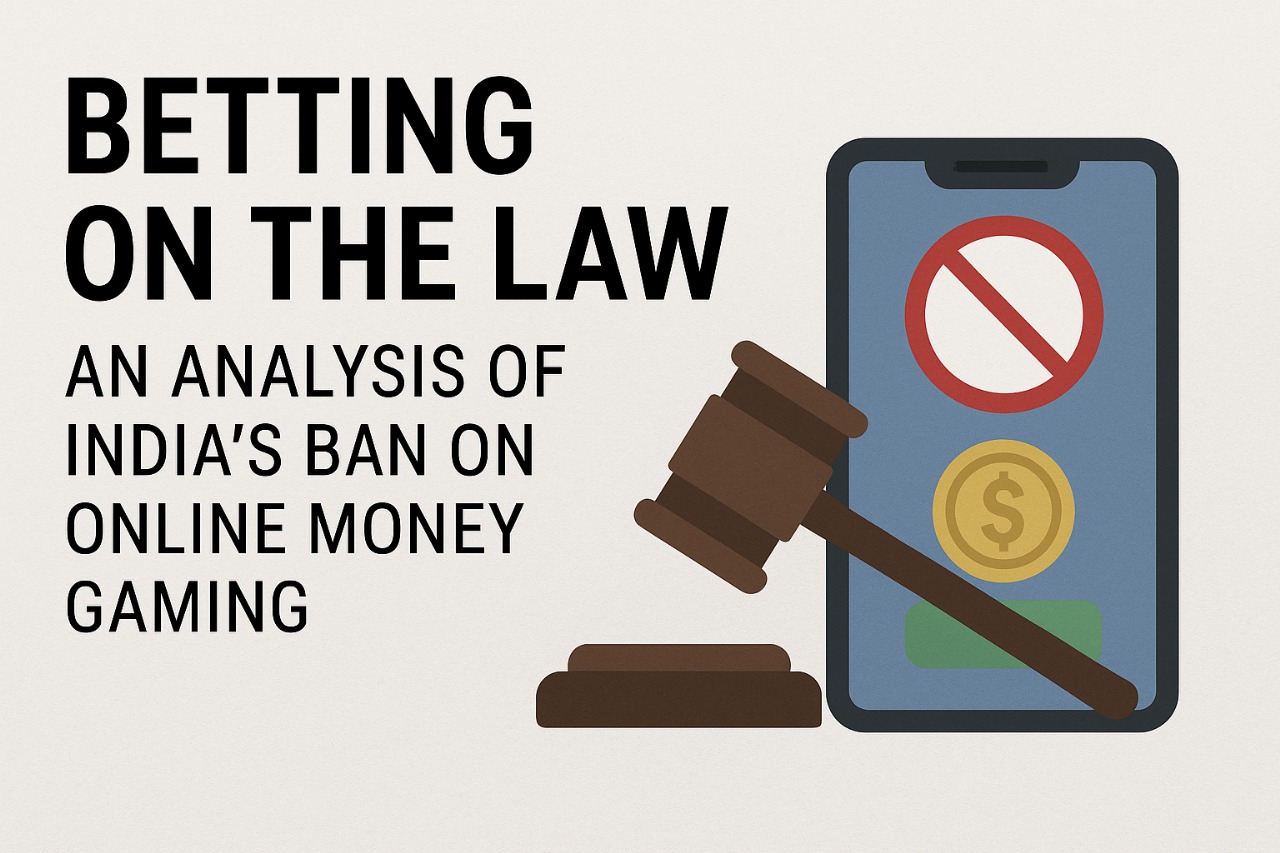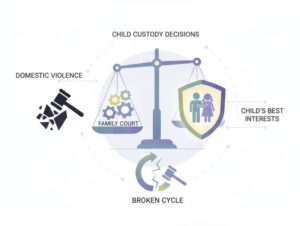INTRODUCTION
A college student in Delhi downloads a fantasy cricket app just for fun. At first, it feels harmless, just a few rupees here and there. But soon, his pocket money is gone, his friends are lending him cash, and every “big win” he chases drags him deeper into a spiral. By the time his parents notice slipping grades and mounting debts, the damage is done.
He is not alone. In 2024, reports suggested that an average Indian user lost Rs. 1,200 – 1,500 a month on online money games. Multiply that by millions of players across the country, and the scale of the problem becomes staggering: families drained of savings, young professionals falling into debt traps, and students gambling away their futures.
What started as light-hearted play had quietly grown into a nationwide crisis, addiction, financial ruin, and the blurry line between “games of skill” and “games of chance.” To confront this, Parliament stepped in. On August 21, 2025, it passed the Promotion and Regulation of Online Gaming Act, 2025 (PROGA), receiving Presidential assent the very next day. More than just another law, PROGA was crafted as a shield: to protect players from the menace of money games, while still preserving and regulating the spirit of online gaming.
But before one dives into what PROGA does, one must first ask, what exactly counts as an online money game?
Online money games involve digital games where users pay to participate, improve levels, buy outfits for their Avatars, and engage in various other activities, and can win monetary rewards. The ‘online game’ is defined under section 2 (1) (f) of PROGA as any game displayed electronically or on a digital device and is managed and operated as software through the internet or any other kind of technology facilitating electronic communication. The ‘online money game’ is defined under section 2 (1) (g) of PROGA as an online game, whether based on skill, chance, or a combination of both, played by a user upon payment of fees, deposit of money, or any other stake, in expectation of winning monetary or other rewards; provided that this shall not include e-sports.
KEY PROVISIONS OF THE PROGA, 2025
- Extent and Applicability [Section 1 (2)]: PROGA extends to the whole of India. It applies to any online money-gaming service offered within the Indian territory or operated from outside its territory.
- Promotion and recognition of E-Sports (Section 3): E-sports are formally recognised as a legitimate sport, with the Ministry of Youth Affairs and Sports tasked with framing policies for their promotion. The framework will cover guidelines for tournaments, standard-setting, and institutional support. It also envisions the creation of training academies, research hubs, and technology platforms, along with incentives and awareness initiatives, to integrate e-sports into mainstream policy and foster a grassroots-to-professional ecosystem.
- Ban on Online Money Games (Sections 5 to 7): The Act prohibits the offering, aiding, inducing, advertising, facilitating financial transactions or authorisation of funds, or otherwise engaging in such activities related to online money gaming. This ban applies to all real money games irrespective of the distinction between games of chance or skill. The Authorities are empowered to block access to unlawful platforms not complying with Sections 5, 6 or 7 under the IT Act.
- Permitted Categories: PROGA permits only online non-monetary digital games. The Act explicitly carves out e-sports (competitive multi-sports events with no betting) and online social games (games played for entertainment/subscription without monetary stakes except for a subscription fee or one-time access fee) as exempt under its preamble, long title, section 3, section 4 and section 19. All other games involving deposits or wagers fall under the prohibition.
- Establishment of Online Gaming Authority (Section 8): The Act lays down, under section 8, the establishment of the Online Gaming Authority to regulate the gaming sector. It will classify and register different games, determine whether a particular game qualifies as an “online money game” subject to prohibition, and address public grievances. The authority will also be empowered to issue guidelines, codes of practice, and compliance directions, while the operational details, such as composition, salary, etc., will be prescribed through government rules.
- Offences and Penalties (Sections 9 to 12): Providing or facilitating an online money-gaming service is punishable with imprisonment of up to 3 years and a fine of up to Rs. 1 crore. Processing payments for such games attracts the same maximum penalty. Publishing or advertising these services may result in imprisonment of up to two years and a fine of up to Rs. 50 lakh. For repeat offenders, operators may face up to 5 years’ imprisonment and fines up to Rs. 2 crore, while repeat advertisers may be punished with imprisonment of two to three years along with enhanced fines. All offences are classified as cognizable and non-bailable, allowing arrest without a warrant and limiting the grant of automatic bail.
- Overriding effect (Section 18): Section 18 of PROGA states that the provisions of this Act are meant to operate alongside existing laws and not replace them. However, if there is any conflict between this Act and another law, the provisions of this Act will take precedence.
IMPACT OF PROGA, 2025 ON INDIAN SOCIETY
- Social Protection and Public Health: One of the strongest justifications for PROGA, 2025, lies in its protective role. The Act seeks to shield vulnerable users, especially youth, from the addictive and destructive effects of real-money games. Families have faced debt traps, suicides, and psychological trauma due to compulsive online betting, making the ban socially reassuring.
- Economic Consequences: The Act hits a multi-billion-dollar industry, causing significant job losses in fantasy sports and rummy platforms. Introducing the Bill without industry consultation may also create a negative impression among global investors, affecting India’s investment climate.
- Blanket Ban: The Act ends the long-standing debate over “games of skill” versus “games of chance” for online platforms. Earlier, legality depended on this distinction, with skill-based games like poker and rummy enjoying protection under state laws and the Public Gambling Act, 1867 (“Gambling Act”). Now, all online money games are banned, regardless of skill or chance. Offline skill-based games involving money continue to be governed by state laws and/or the Gambling Act.
CONCLUSION
The PROGA, 2025, marks a major shift in India’s online gaming landscape. It protects users from the risks of money games while promoting safer alternatives like e-sports and educational games. The ban also brings economic and legal challenges, showing that balancing citizen safety with industry growth is not easy. How effectively the government enforces the law and supports innovation will determine whether India can build a responsible, thriving gaming ecosystem.
-By Shlangha Mandal



